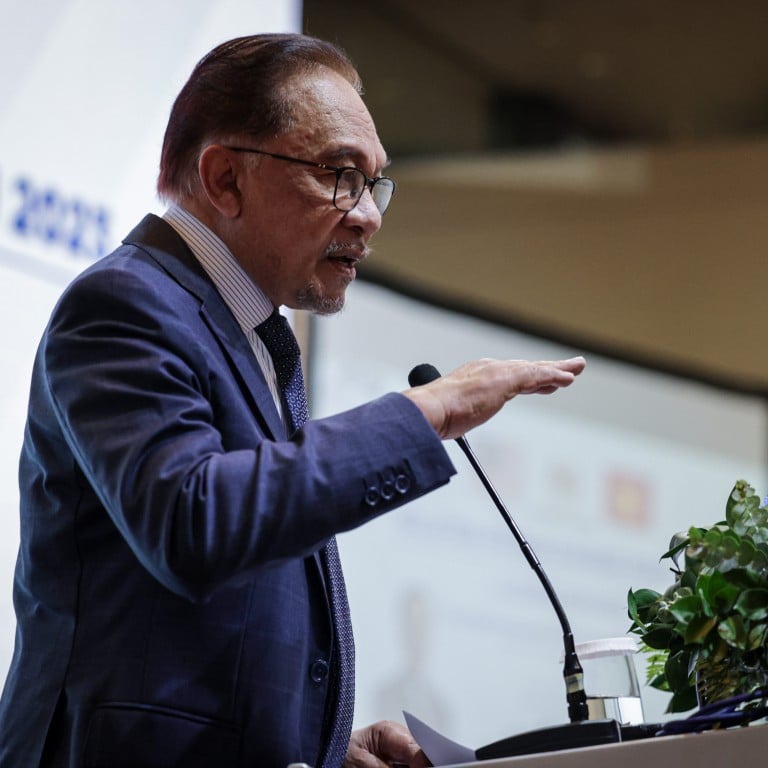
Malaysia unveils 10-year plan to reboot economy, create high-paying jobs
- Prime Minister Anwar Ibrahim said he aims to place Malaysia among the top 30 global economies, boost wages and participation of women in the workforce
- Anwar warned without implementing reforms, the country will face a ‘very serious crisis’ that would undoubtedly affect its structure
The plan involves attracting companies that create high-income jobs for locals with tax breaks, boost manufacturing and implement reforms to make its stock markets attractive, Anwar said in his speech on the 10-year plan in Kuala Lumpur.
“My utmost priority in the near term is to rebuild the country’s fiscal capacity. We are all aware of the national debt situation,” Anwar said, referring to government debt at over 60 per cent of GDP. “Without any reforms, we will face a very serious crisis that would undoubtedly affect the country’s structure.”
What a weak ringgit means for Malaysia’s economy and PM Anwar in the state polls
Political stability is key to narrowing the budget deficit sustainably, as also lowering the government’s net debt to below 60 per cent of GDP, according to S&P Global Ratings, which last month reaffirmed Malaysia’s ‘A-’ investment-grade credit score.
Anwar’s multiracial unity government must win at least three of the six poll-bound states in the contest against the conservative Malay federal opposition alliance. Anything worse could prompt Anwar’s new-found allies to reassess their support, potentially jeopardising his efforts to slash subsidies and the fiscal deficit.
Alongside reducing the fiscal gap, Anwar aims to boost economic growth to 6 per cent in the short-term.
As polls loom, younger Malays flock to the Islamist PAS. Is TikTok the cause?
Malaysia’s economy expanded at a more moderate pace in recent months, as slowing external demand weighed down on exports, according to the central bank. The government expects the economy to expand from 4 per cent-5 per cent in 2023, a far cry from last year when it took the mantle of the fastest growing economy in Asia.
“If we’re satisfied with the current situation, the economy will continue to record growth of between 4 per cent to 5 per cent,” Anwar said. “However, if we work hard and implement reforms, we can achieve 5.5 per cent, in fact I believe it is not impossible for us to achieve 6 per cent growth in the near term.”

